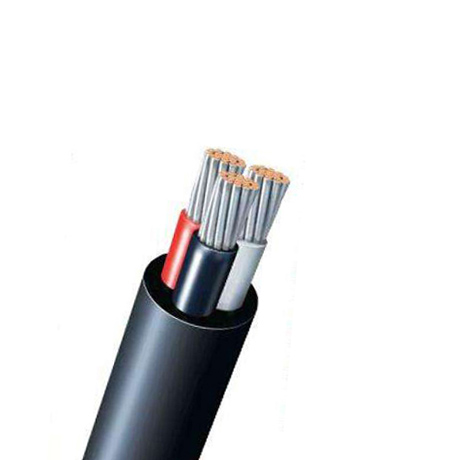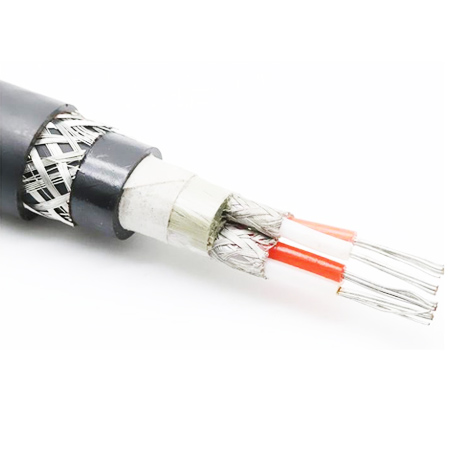

Marine communication cable is a marine cable used for signal transmission and control systems in various ship communications, electronic computers, and information processing equipment. Usually, the laying space of marine cables is limited, so the armored structure adopts metal wire weaving, which is the biggest difference in structure from ordinary land-based power, control, and communication cables.
Mainly used in signal transmission and control systems in various types of ship communications, electronic computers, and information processing equipment. This type of cable is suitable for connecting cables of signal transmission equipment with an AC rated voltage of 150V or less on various river and sea ships, offshore oil and other water buildings. It is also used in the control and signal transmission connection cables of precision instruments or instruments, such as video connections, telephone connections, etc.

Water resistance and corrosion resistance: Marine communication cables must have excellent water resistance and corrosion resistance, because ships will be exposed to harsh environments such as salt water and moisture during navigation. Usually, high-quality polyethylene or polyvinyl chloride materials are used, which have good waterproof properties and can resist the erosion of chemicals in the marine environment.
Anti-electromagnetic interference ability: Marine communication cables are required to have good anti-electromagnetic interference ability to shield external interference signals and ensure communication quality. Tinned copper wire braided mesh or aluminum foil shielding design is usually adopted.
Flame resistance: Due to the fire hazard of ships, cable materials need to have certain flame retardancy and be able to slow down or prevent the spread of flames in high temperature environments.
Flexibility: The cable needs to have good flexibility so that it can be flexibly laid in the narrow installation space of the ship, while ensuring stable electrical signal transmission under various ship movement conditions.

Marine communication cables and ordinary power cables have significant differences in use and performance:
Different uses: Marine communication cables are mainly used for signal transmission and control system cables, while ordinary power cables are used to transmit and distribute electrical energy.
Different insulation standards: The insulation standards of marine communication cables are different from those of ordinary power cables, and are suitable for different application scenarios and safety requirements.